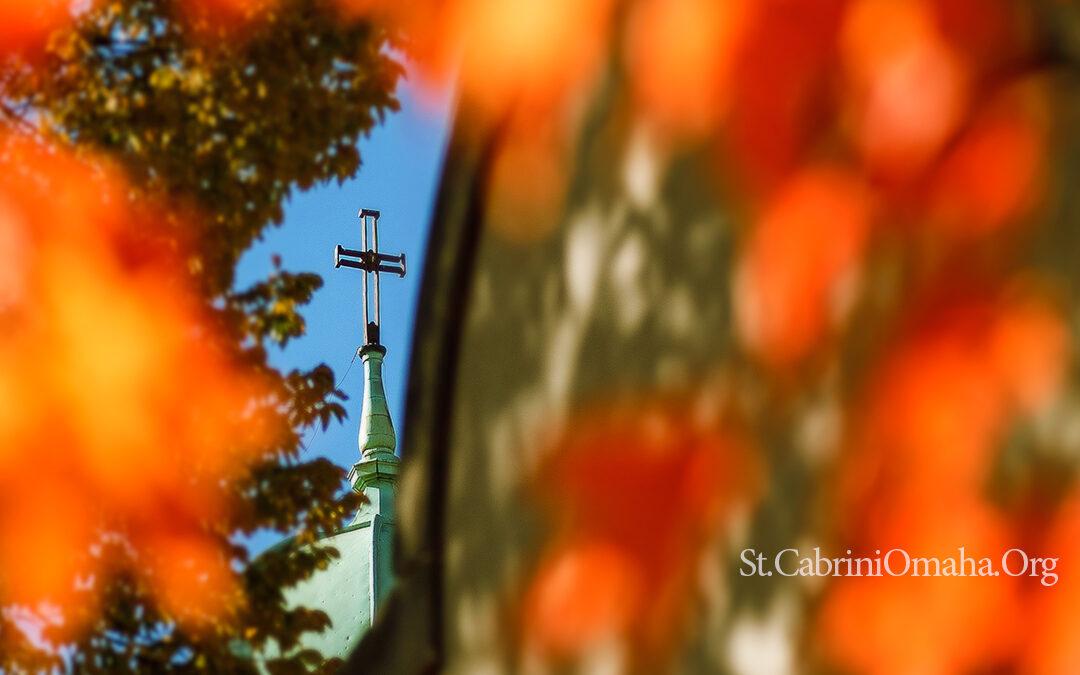Dear Friends,
Last weekend, Charlie Petro from Ixim, Spirit of Solidarity, spoke at all the Masses at Cabrini about the importance of our ongoing commitment and involvement with this Mission of the Archdiocese. Wonderfully, I was connected with Ixim when it began twenty years ago. I am so happy that it continues to change the lives of people here in Omaha and in Huehuetenango, Guatemala.
At the same time that we were reflecting on our call to mission here in Omaha, we were hearing news about the events happening in Israel and Palestine. This long-lasting conflict had once again reached a level of violence where innocent people on both sides were being harmed by the long-brewing anger in the region. The events taking place here in our parish and on the world-stage brought to my mind one of the teachings of Pope John Paul II concerning how we Christians are to live in the world with solidarity.
Both in our mission project and with our brothers and sisters in the Middle East, we are invited to have a stance of solidarity, but what does that mean? Is it enough for me to say something on my Facebook page? John Paul expected so much more.
“Solidarity is not a feeling of vague compassion or shallow distress at the misfortunes of so many people, both near and far,” John Paul II wrote. “On the contrary, it is a firm and persevering determination to commit oneself to the common good; that is to say, to the good of all and of each individual, because we are all really responsible for all.” He later added that “the exercise of solidarity within each society is valid when its members recognize one another as persons.”
They are simple words; however, they demand that we concern ourselves with the eradication of what Pope John Paul II called “structures of sin.” I did a sabbatical in Israel shortly before becoming pastor at Cabrini. The institute I attended is called Tantur and it is operated by Notre Dame University. They teach both history and present-day realities. I learned a lot about the conflict in Israel and some possible solutions. However, most of all I learned how complex the problem is and remains.
If you ever run across writings or talks by the Jesuit priest Fr. David Neuhaus concerning Israel, please read them. David Neuhaus, son of German Jews, was born in South Africa. At the age of 15, he moved to Israel; at 26 years, he converted to the Roman Catholic faith. Neuhaus finished his studies in political science at the Hebrew University of Jerusalem with a doctorate. He was one of our teachers at Tantur and spoke with wisdom and experience from two sides of the conflict. His books are worth reading now.
I don’t know what’s needed in Israel and Palestine at this moment. But I do know we can try to do what John Paul taught. For him, solidarity entails a shift in our worldview, and a shift in our behavior, even in our own sphere of influence and engagement. “Solidarity helps us to see the ‘other’ — whether a person, people or nation, not just as some kind of instrument … but as our ‘neighbor,’ a ‘helper,’ to be made a sharer, on a par with ourselves, in the banquet of life to which all are equally invited by God.”
To the extent that we, the Church, have a prophetic mission, we must speak of our equality before God, the universality of human dignity, and the call to holiness and to remind each other that none of that can happen except by grace, the presence of God amid a people.
The other thing we can do and must do is pray for peace in this land we have come to call Holy. Pray for the people who live there and pray especially for the innocents on both sides who are suffering from the violence.
Peace,
Fr. Damian



